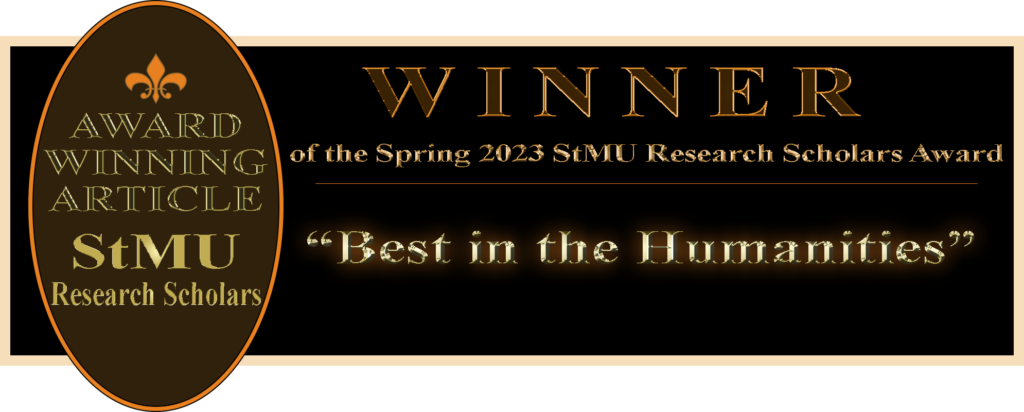
Being the head of any government agency comes with a myriad of public scrutiny. For Dr. Margaret Chan, her time as Director General of the World Health Organization (WHO) meant the end of a positive public image in the international public health sphere. Elected by secret vote in 2006, she came into her position on the back of praise for her containment of a swine flu and of SARS as a top public health official in Hong Kong.1 Her image was soon dirtied in her response to the H1N1 virus outbreak in 2009, and to the Ebola Virus outbreak in 2014.
The Ebola outbreak of 2014 started in Guinea, Africa in March of that year. This was not immediately abnormal, as there had been periodic outbreaks of the disease, primarily in Africa, since its discovery in 1976. As cases rose, Doctors without Boarders (referred to by their French acronym MSF) began a major response effort. Overwhelmed by the demand and lack of resources, they desperately grasped for the attention of the international community as well as leadership from the WHO.2 Dr. Chan was the head of the WHO, but at that stage, had little control over the relief effort. At the time, the outbreak was mainly combated by the MSF. Within the WHO, it was handled by the organization’s regional operation: AFRO lead by Dr. Sambo.3
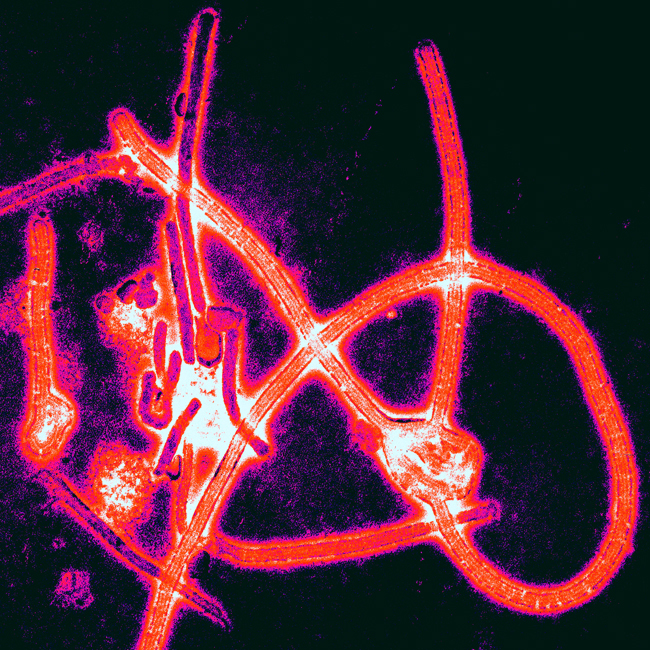
The Ebola Virus Disease, primarily referred to as Ebola or EVD, starts with a common fever and muscle aches, but can progress to gastrointestinal issues and unexplained hemorrhaging. It can be extremely fatal if left untreated or undertreated. It is passed through contact with bodily fluids such as blood or saliva.4 The countries of Guinea, Liberia, and Sierra Leone have extremely fluid boarders and the virus spread between them almost immediately after its discovery. A hot zone at their borders was set up for surveillance shortly after its discovery as a fast-moving disease. While the spread was technically international, it was at first contained well within these three countries. Surveillance of the crisis was ordered by the WHO in April. This lead to a report calling the outbreak the most complex Ebola outbreak in the disease’s history. Continued criticism from the MSF and public calls for leadership got Dr. Chan involved and personally associated with the emergency in June, three months after the discovery of the new strand of the disease.5
Dr. Chan immediately knew she needed to take the outbreak seriously. She promised this to the international community. The greatest power held by the Director General of the WHO is to declare a “public health emergency of international concern” (PHEIC). The WHO has advisory abilities no matter the situation, but their legal power comes solely from scenarios where a PHEIC is declared. This is underwritten in the International Health Regulations (IHR).6 The IHR defines a PHEIC as “an extraordinary event determined… to be a public health risk to other States through the international spread of disease and to potentially require a coordinated international response.”7 The goal during this time was to control the emergency with as little damage to the economic and political climate of the countries as possible. Under this declaration, the WHO can legally enforce quarantine and sanitation requirements. If a UN member state wants to add or shift these regulations to be more thorough, they are legally obligated to inform and get the approval of the WHO. The Director General has more power under this declaration than at any other time. They coordinate relief effort between countries involved and endorse any emergency committees created for the cause.8
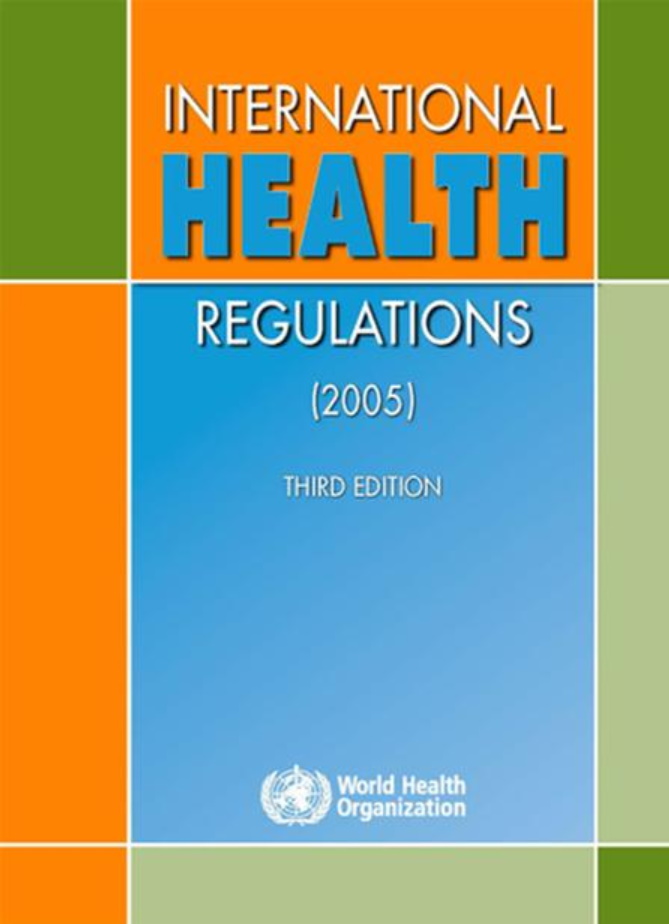
Chan’s primary criticism came from her hesitation to order a PHEIC. There were many factors that affected this decision. Chan was placed under an enormous amount of pressure during this time. The systems and circumstances were stacked against her ability to tackle this disease. The road to the declaration was only months long, but it dragged out for the West African people as well as for the international community. The public was unaware of the complexities Chan was facing. For the second time in her career, she was placed at the center of a public health emergency, and was herself under a microscope.
The first time Chan received criticism as General Director was during the H1N1 outbreak in 2009. This influenza outbreak was a terrifying risk to public health at its inception. The illness had spread to 73 countries. Chan released a worried report that a world pandemic had arrived. However, fatalities from the disease turned out to be much lower than expected. Response efforts were left unnecessary, and the tragedy was avoided. Chan was told that she acted in too much of a rush.9 In her effort to take the outbreak seriously, she declared a PHEIC prematurely. This caused fear, distrust, and a waste of resources. Chan went into the Ebola outbreak with this debacle in mind. She wanted to take it seriously, but move forward cautiously. Her first step after taking responsibility for the crisis was to declare it a level three emergency. This is the highest rating before a PHEIC. Her response was primarily diplomatic and related to fundraising. Chan portrayed confidence and seriousness, but the lack of action and result led to continued public scrutiny. Criticism only grew from there.
The first meeting held by Dr. Chan about the relief effort was an urgent high-level ministerial meeting. It hosted a large variety of participants from high-ranking health officials to representatives of airline companies.10 Chan had the complexity of the issue in mind. Her collection of this meeting showed her knowledge that the relief effort would not be straight forward. Challenges continued to pile up. Despite her knowledge of these issues, there was very little she could do.
One of these mentioned challenges was distrust of international officials. This made reporting percentages low. While failure to report to the WHO is technically illegal under IHR guidelines, enforcement mechanisms were ineffective. In addition, there was a lack of databases for previous infections, which made future tracking challenging. There were obvious gaps in the research and reporting, but Chan was helpless in filling these gaps. Challenges in contact tracing proved to be one of the biggest factors to perpetuate the disease. This is true for all infectious diseases, but what shows this in this outbreak was the response in Nigeria. Their more successful contact tracing led to a much lower infection rate.11 This disparity between countries is something that the WHO doesn’t put enough recognition towards.
There was also a risk of social unrest when implementing travel and trade regulations. This is especially true for the countries that were involved because they started with a weak economic infrastructure with recent political instability.12 One goal of implementation of the IHR is to minimize economic effects, but there is no road map to make that happen. Dr. Chan was expected to balance all of these factors. It is an almost impossible task, but Chan forged onward.
Knowing the leadership style that Chan took on as an international official, these social factors were a total nightmare for the doctor. Chan was known for never wanting to isolate any country in their cultural and political beliefs.13 In an attempt to collaborate well with the West African countries involved, she collaborated with community and religious leaders to raise awareness and safety about the disease.14 Much of her initial action, though, was to subvert responsibility away from the WHO and onto the countries themselves. Such a response was representative of her stance as director. She believed that the WHO was an organization to be run by its member states. This was a very different approach from her predecessor, Gro Harlem Brundtland, who is widely remembered in a positive light for his hardline stance and clear leadership. Chan had already received criticism for not being stern about the health of individuals in the LGBTQ community in countries run by theocracies. Her emergency responses have gained similar criticism.15 In this way, Chan’s approach to her position was paradoxical. She was criticized for avoiding criticism.
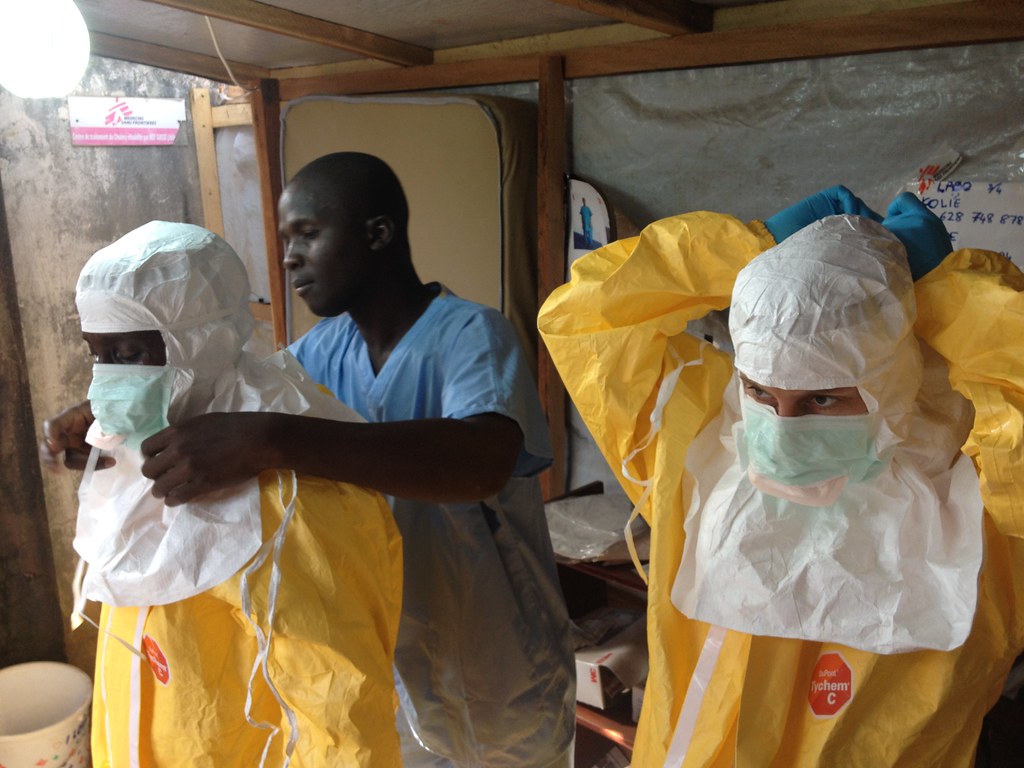
Chan’s next action was to call a conference to secure donors for the response effort. The UN had sent the Global Outbreak Alert and Response Network (GOARN) to help the relief effort, but the WHO was relatively ineffective with their given budget. Chan acknowledged this completely and without reservation. She pointed out that the current resources would leave them with an inability to make a difference in the crisis. Further observation of the virus suggested a third wave of transmission that would spread faster than before.16 With this looming ahead, Chan feared the lack of resources that would soon appear.17 Major funding projects are almost always left with gaps. This adds to the inability of the WHO to make a major difference. In addition to the logistical challenges that they were already facing, Chan didn’t have nearly enough resources to tackle the problem. She knew that disaster would lay ahead.
To address the mounting distress that the west African countries were facing, Chan called a meeting between the leaders of the three most affected countries. She reemphasized the importance of personal responsibility of each respective government. In addition to the talk, the leaders formed a joint resolution, which created an isolation zone regulated by the police and the military.18 Chan and the WHO’s actions here reveal another of the shortcomings of the organization. It assumes equal—or at least a common baseline—power between all of the member states. The IHR defines in articles 5 and 13 that countries must meet a minimum “core public health capacity” by 2012. Only a third of countries were able to meet that requirement.19 Guinea, Sierra Leone and Liberia were three of those countries. The WHO makes a declaration to what countries should do and some have no ability to put that declaration into practice. When Chan placed the response in the hands of these country’s leaders, she neglected to recognize the logistical challenges in doing so. This crisis did not show the failures of Dr. Chan as a person, but the failures of the system she was supposed to work within.
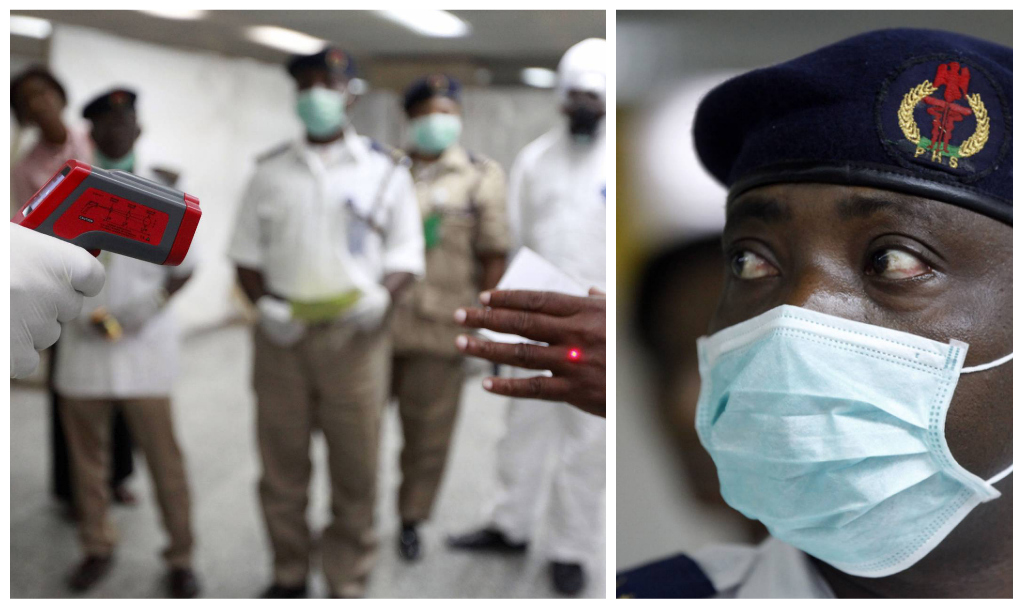
On July 20, the fear that the disease would leave the region was realized.The first case was discovered in Lagos, Nigeria, brought there by a plane traveler, then in Guinea, and in Sierra Leone. It was this case that finally caused Dr. Chan to call a meeting to discuss grounds to declare this situation a PHEIC. Such a meeting is defined in the IHR. A vote is taken to decide the next best steps. 20 Critics are correct in their assessment that this is not when the outbreak became a crisis. By this date, there had already been 1766 cases and 959 deaths.21 The risk of this continued trend was already high and early action could have saved many lives. Yet, the movement they were looking for from the WHO and their director was finally coming.
The meeting took place on August 8, 2014. The committee voted unanimously to declare the crisis a “Public Health Emergency of International Concern.” When asked about this delay later, Chan stated that it could have been moved forward days, but not weeks and certainly not months.22 Two and a half weeks passed between the first confirmed case in Lagos and the declaration. The question to whether the timing was appropriate for the declaration comes down to what the responsibility of the WHO is and what can be done to help countries with limited public health networks. The WHO defends themselves on their website by saying that the declaration was, “neither the start of the WHO response nor the first warning by WHO to the international community about the severity of the situation, both of which had started months before.” They go on to rave about GOARN’s “stern warnings” early on in their response.23 Chan herself said the PHEIC should have been declared only after the spread to Nigeria. Yet, it was this emergency response that made the world lose trust in the WHO. Dr. Chan bears partial responsibility for that legacy.
The outbreak turned out to be devastating in Sierra Leone, Guinea, and Liberia. Where spread outside of these countries had limited devastation, the outbreak was not contained as it could have been. Statistics on the disease are hard to confirm, but there were an estimated 28,000 cases, over 15,000 laboratory confirmed cases, and over 11,000 deaths. In all other affected countries, there were only 34 laboratory confirmed cases and 15 deaths.24 This shows that proper measures can contain the disease more effectively. This raises questions about the role of the WHO and when they need to step in.
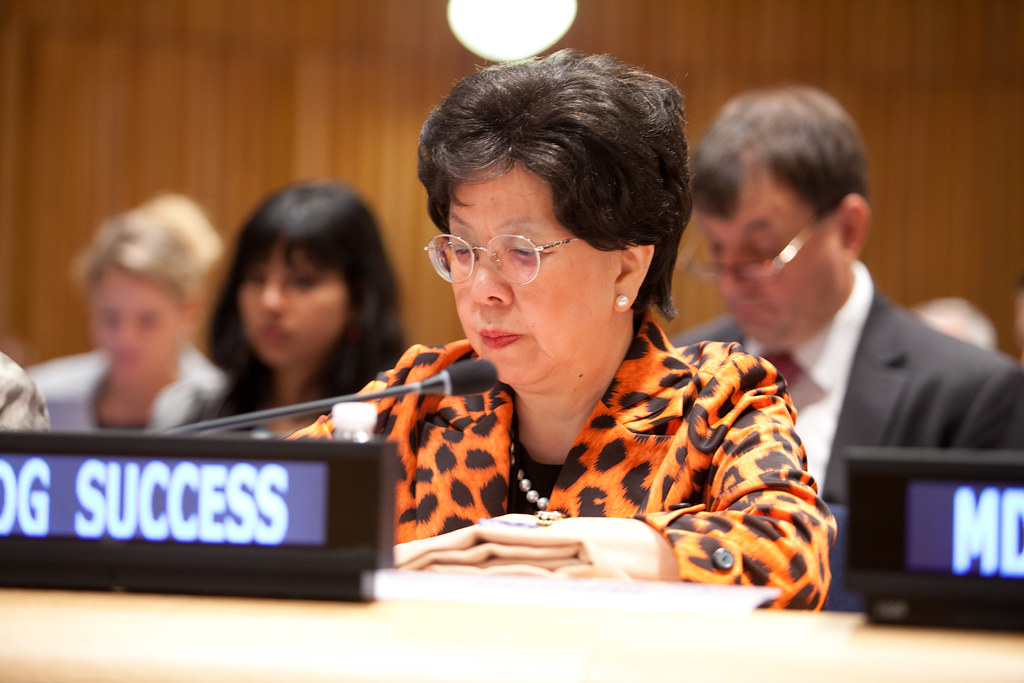
Dr. Chan is remembered for doing her best, but also for not implementing effective measures to combat the outbreak. She received a lot of criticism, but she was working within a system that limited her ability to make a difference in the response. She was limited by WHO mechanisms, limitation in resources, lack of legal legitimacy for her role, and a complex network of responses that could not work together effectively. Dr. Chan recognized these challenges, but public opinion did not recognize these challenges as it pertained to Chan’s reputation. Her “head of state pleaser” attitude gained her more criticism and added to the challenges that ended her career. Dr. Chan was not able to overcome the obstacles to providing an effective public health response of international proportion.
- Chan Wai Yin and Ma Shu Yin, “The Making of a Chinese Head of the WHO: A Study of the Media Discourse on Margaret Chan’s Contest for the WHO Director-Generalship and its Implications for the Collective Memory of SARS,” International Journal of Health Services 39, no. 3 (2009): 587-614, http://www.jstor.org/stable/45131157. ↵
- “World Looks for a Better Doctor,” POLITICO (blog), January 22, 2017, https://www.politico.eu/article/world-looks-for-a-better-doctor/. ↵
- N Alexander, “Key Events in the WHO Response,” World Health Organization, 2015, https://www.who.int/news-room/spotlight/one-year-into-the-ebola-epidemic/key-events-in-the-who-response-to-the-ebola-outbreak. ↵
- “Transmission | Ebola Hemorrhagic Fever,” Centers for Disease Control and Prevention, January 14, 2021, https://www.cdc.gov/vhf/ebola/transmission/index.html. ↵
- N. Alexander, “Key Events in the WHO Response,” World Health Organization, 2015, https://www.who.int/news-room/spotlight/one-year-into-the-ebola-epidemic/key-events-in-the-who-response-to-the-ebola-outbreak. ↵
- Robert Frau, “Law as an Antidote: Assessing the Potential of International Health Law Based on the Ebola-Outbreak 2014,” Goettingen Journal of International Law 7 (n.d.): 44. ↵
- Article 1 IHR, 2005 ↵
- Robert Frau, “Law as an Antidote: Assessing the Potential of International Health Law Based on the Ebola-Outbreak 2014,” Goettingen Journal of International Law 7 (n.d.): 44. ↵
- Tsung-Ling Lee, “Making International Health Regulations Work: Lessons from the 2014 Ebola Outbreak,” Vanderbilt Journal of Transnational Law 49 (n.d.): 54. ↵
- N. Alexander, “Key Events in the WHO Response,” World Health Organization, 2015, https://www.who.int/news-room/spotlight/one-year-into-the-ebola-epidemic/key-events-in-the-who-response-to-the-ebola-outbreak. ↵
- Olushayo Oluseun Olu et al., “Contact Tracing during an Outbreak of Ebola Virus Disease in the Western Area Districts of Sierra Leone: Lessons for Future Ebola Outbreak Response,” Frontiers in Public Health 4 (2016): 130, https://doi.org/10.3389/fpubh.2016.00130. ↵
- Tsung-Ling Lee, “Making International Health Regulations Work: Lessons from the 2014 Ebola Outbreak,” Vanderbilt Journal of Transnational Law 49 (n.d.): 54. ↵
- “World Looks for a Better Doctor,” POLITICO (blog), January 22, 2017, https://www.politico.eu/article/world-looks-for-a-better-doctor/. ↵
- N. Alexander, “Key Events in the WHO Response,” World Health Organization, 2015, https://www.who.int/news-room/spotlight/one-year-into-the-ebola-epidemic/key-events-in-the-who-response-to-the-ebola-outbreak. ↵
- “World Looks for a Better Doctor,” POLITICO (blog), January 22, 2017, https://www.politico.eu/article/world-looks-for-a-better-doctor/. ↵
- N. Alexander, “Key Events in the WHO Response,” World Health Organization, 2015, https://www.who.int/news-room/spotlight/one-year-into-the-ebola-epidemic/key-events-in-the-who-response-to-the-ebola-outbreak. ↵
- Tsung-Ling Lee, “Making International Health Regulations Work: Lessons from the 2014 Ebola Outbreak,” Vanderbilt Journal of Transnational Law 49 (n.d.): 54. ↵
- N. Alexander, “Key Events in the WHO Response,” World Health Organization, 2015, https://www.who.int/news-room/spotlight/one-year-into-the-ebola-epidemic/key-events-in-the-who-response-to-the-ebola-outbreak. ↵
- Tsung-Ling Lee, “Making International Health Regulations Work: Lessons from the 2014 Ebola Outbreak,” Vanderbilt Journal of Transnational Law 49 (n.d.): 54. ↵
- Robert Frau, “Law as an Antidote: Assessing the Potential of International Health Law Based on the Ebola-Outbreak 2014,” Goettingen Journal of International Law 7 (n.d.): 44. ↵
- “Outbreaks | Ebola Hemorrhagic Fever,” Centers for Disease Control and Prevention, January 14, 2021, https://www.cdc.gov/vhf/ebola/transmission/index.html. ↵
- “World Looks for a Better Doctor,” POLITICO (blog), January 22, 2017, https://www.politico.eu/article/world-looks-for-a-better-doctor/. ↵
- N. Alexander, “Key Events in the WHO Response,” World Health Organization, 2015, https://www.who.int/news-room/spotlight/one-year-into-the-ebola-epidemic/key-events-in-the-who-response-to-the-ebola-outbreak. ↵
- “Outbreaks | Ebola Hemorrhagic Fever,” Centers for Disease Control and Prevention, January 14, 2021, https://www.cdc.gov/vhf/ebola/transmission/index.html. ↵
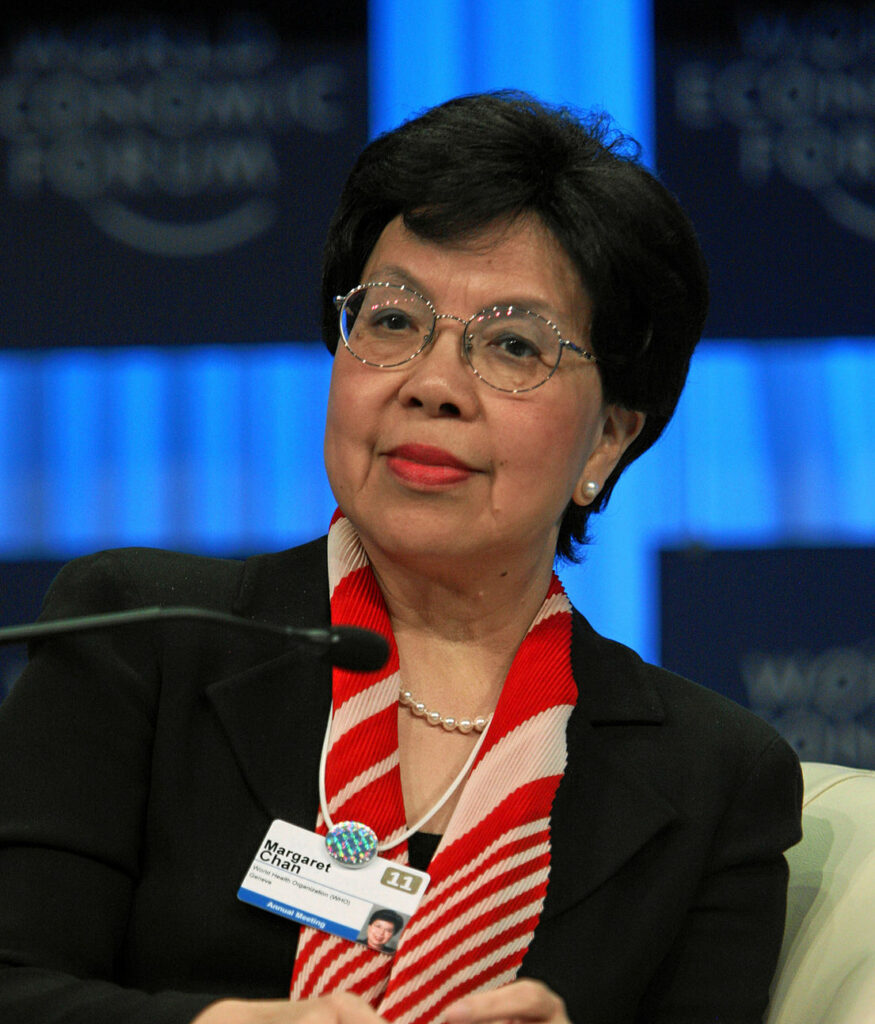


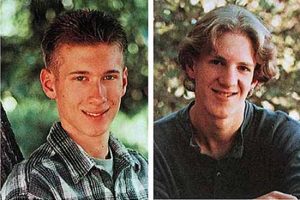
26 comments
Peter Alva
I think this is a well written article. I didn’t know too much about ebola other than how it was contained far better than covid was. I didn’t know who she was back then but heard her name. Looking back at it, it really sounds difficult to make the decisions she made during this outbreak, especially with how everyone responded to the information the WHO put out during covid. Not saying they were wrong but just surprised people weren’t questioning ebola as much.
Iris Reyna
Congrats on your article nomination, the article was very informative and interesting. The article was organized and put together nicely. Good job at using the images to reference the seriousness of an outbreak of Ebola can be. Before reading I had never heard about Margaret Chan or the impact she had on the spread of the Ebola Virus. It was interesting to hear about WHO and what they stand for and what their mission is. Learning about all the things that Margaret Chan did shows that she needs more recognition for what she does. I learned a lot reading this article, good job.
Melyna Martinez
Hello, this article is really interesting Dr. Chan’s decision making and thought process in the situation she experienced is incredible. I believe that women, especially one in her position, tend to be judged, but with the decisions she made criticism was given to her. The understanding of public safety and stoping the spread of disease are extremely important and that is a job she did.
Luke Rodriguez
This was a fantastic read! Also, congrats on the nomination! It was well-deserved. The article was well-written and detailed. This disease was terrifying when I first heard about it, and then suddenly, I did not hear about it anymore in the news or on social media. I’ve never heard of Margaret Chan or how she helped spread the Ebola virus.
Alanna Hernandez
Anna, you did amazing with this article! It feels like yesterday when the mas panic of Ebola hit the United States. I wasnt ever aware of a singular person getting the finger pointed at them for the way WHO responded. I can’t even imagine having all that pressure of the world on me. I feel she responded appropriately by keeping the country involved in loop of how the WHO would take action
Osondra Fournier-Colon
There is so much complexity when dealing with a public health emergency, and knowing that these officials try their best to block the disease and make sure the public is comfortable is a commendable effort. Margaret Chan had her work cut out for her, but she handled it well despite the immense criticism. Nevertheless, just reading about how these decisions are made and the caution put into them is anxiety-inducing.
Nnamdi Onwuzurike
Congratulations on your nomination! Margaret Chan is a prominent public health leader who played a critical role in tackling the Ebola outbreak in West Africa in 2014. As the Director-General of the World Health Organization, Chan helped to coordinate the international response to the crisis and worked to improve preparedness for future epidemics. Her leadership and expertise in public health have had a significant impact on global health policy and have helped to shape the response to some of the most pressing health challenges of our time.
Isabel Soto
This was a well-written article. I found it very informative about how the WHO mainly operates as an advisory agency. I remember hearing about the Ebola outbreak on the news, but I was too young to understand. Now that I do, I can see how complicated decision-making could be as the director of the WHO. Dr. Chan had many factors to balance and could have done a better job of containing the outbreak, but future leaders can learn from her mistakes. Congrats on your nomination.
Carina Martinez
Wow, excellent work! Congratulations on your nomination. It was really intriguing to read about Dr. Chan and the challenging decisions she had to make.
Guiliana Devora
Thus was an incredible story and the author did an amazing job of telling it! Congratulations as well on the nomination. This disease was very scary when I first heard about it and then all of a sudden I did not hear about it anymore in the news or social media. Dr. Chan is an amazing women and I think what she is doing is amazing and definitely deserves recognition for what she has done.